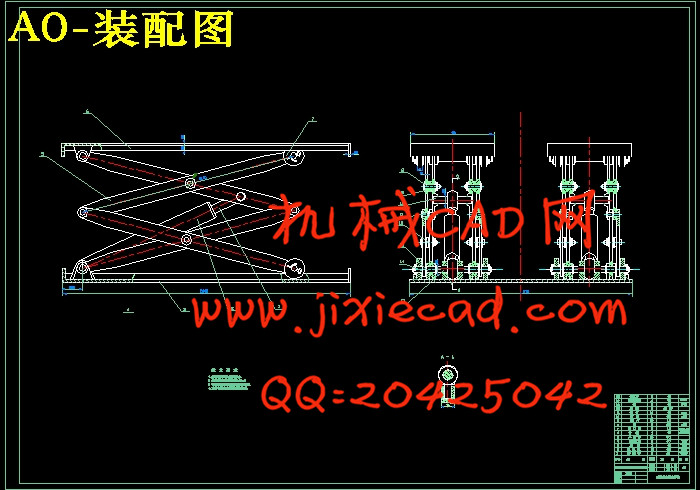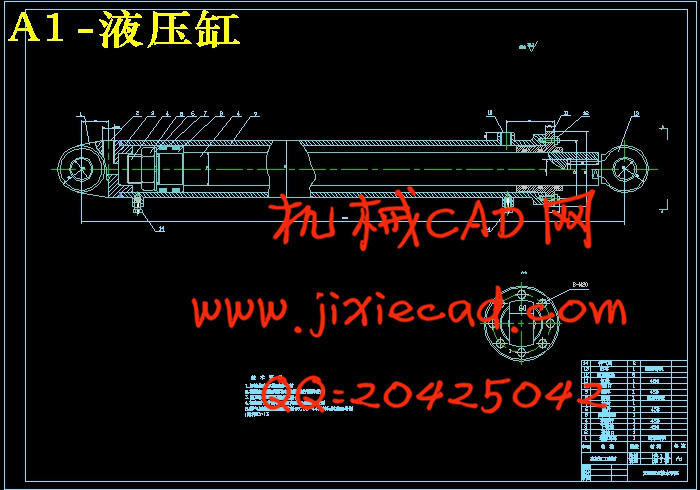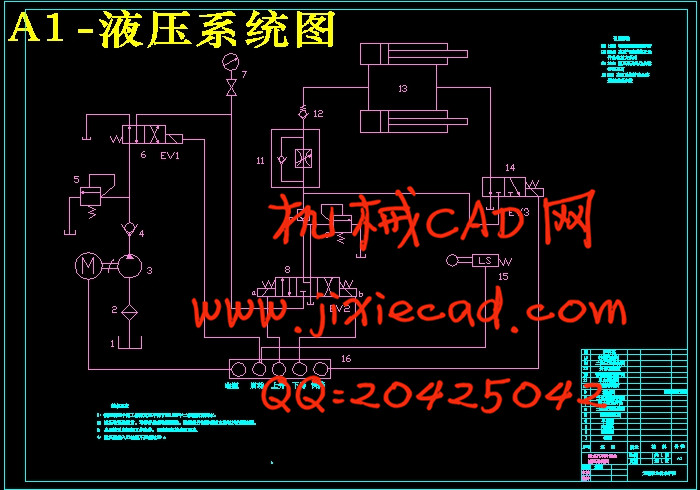设计简介
双铰接剪叉式液压升降台的设计
摘要:双铰接剪叉式升降台的设计是在原由的剪叉式升降台的基础上,运用现在的灵活性、安全性、经济性等指标;结构以能够满足灵活性要求较高的汽车维修需要为前提,通过不同型号和响应福建达到满足物流、汽车维修等性能要求。
通过对双铰接剪叉式升降台机构位置参数和动力参数的技术,结合具体实例,对机构中良种液压缸布置方式分析比较,并根据要求对液压传动系统个部分进行设计计算最终确定液压执行元件-液压缸,通过对叉杆的各项受力分析确定台板与叉杆的载荷要求,最终完成剪叉式液压升降台的设计要求。
关键字:升降台;剪叉式 ;液压
Double-hinged scissors hydraulic lifting platform design
Abstract: Double-hinged scissors lifts in the design of the previously scissors lifts on the basis of the present application flexibility, security, economic and other indicators, structural flexibility to meet higher requirements of vehicle maintenance the need for premise, and the response by different models to meet Fu jian logistics, vehicle maintenance, and other performance requirements.
Through the double-hinged scissors lifts Position parameter and the dynamic parameters of technology, combined with specific examples, the agency improved in the hydraulic cylinder layout analysis and comparison, and in accordance with the requirements of part of a hydraulic system design and calculation of final Pressure implementation components - hydraulic cylinder, through analysis of the fork-defined plate and fork-load requirements, the final completion of scissors hydraulic lifts the design requirements.
Key Words:Cage assembly;Scissors forks are dyadic;Hydraulic pressure
目 录
第一章 绪 论························································ 1
1.1 举升机的发展简史·····················································1
1.2 汽车举升机的设计特点 ···············································2
1.3 汽车举升机的安全保证措施 ···········································3
1.3.1 设计制造方面的安全保证措施······································· 3
1.3.2 使用维护方面的安全保证措施······································· 4
第二章 剪叉式升降台的应用及其受力分析的讨论························· 5
2.1剪叉式升降平台的三种结构形式······································· 5
2.2 双铰接剪叉式升降平台机构的位置参数计算··························· 6
2.3 双铰接剪叉式升降平台机构的动力参数计算··························· 8
2.4 剪叉式升降平台机构设计时应注意的问题······························9
2.5 针对性比较小实例:··················································· 9
2.6双铰接剪叉式升降平台机构中两种液压缸布置方式的分析比较········· 12
2.6.1问题的提出:······················································13
2.6.2两种布置方式的分析和比较:······································14
2.6.3实例计算·························································15
第三章液压传动系统的设计计算·········································· 20
3.1明确设计要求 制定基本方案:········································· 20
3.2制定液压系统的基本方案·············································· 20
3.2.1确定液压执行元件的形式 ·······································20
3.2.2 确定液压缸的类型················································22
3.2.3 确定液压缸的安装方式···········································22
3.2.4 缸盖联接的类型··················································22
3.2.5拟订液压执行元件运动控制回路···································22
3.2.6液压源系统························································22
3.3确定液压系统的主要参数·············································· 23
3.3.1载荷的组成与计算:················································23
3.3.2初选系统压力······················································25
3.3.3计算液压缸的主要结构尺寸········································26
3.3.4确定液压泵的参数·················································28
3.3.5管道尺寸的确定 ··············································…30
3.3.6油箱容量的确定················································ 31
3.4液压缸主要零件结构、材料及技术要求································31
3.4.1缸体·····························································31
3.4.2活塞·····························································32
3.4.3活塞杆···························································33
3.4.4活塞杆的导向、密封和防尘·······································33
3.4.5液压缸的排气装置················································34
3.4.6液压缸安装联接部分的型式及尺寸································35
3.4.7绘制液压系统原理图··············································35
第四章 台板与叉杆的设计计算 ···········································39
4.1确定叉杆的结构材料及尺寸 ···········································39
4.2横轴的选取···························································· 43
结 论································································· 44
致 谢································································· 45
参考文献································································· 46
摘要:双铰接剪叉式升降台的设计是在原由的剪叉式升降台的基础上,运用现在的灵活性、安全性、经济性等指标;结构以能够满足灵活性要求较高的汽车维修需要为前提,通过不同型号和响应福建达到满足物流、汽车维修等性能要求。
通过对双铰接剪叉式升降台机构位置参数和动力参数的技术,结合具体实例,对机构中良种液压缸布置方式分析比较,并根据要求对液压传动系统个部分进行设计计算最终确定液压执行元件-液压缸,通过对叉杆的各项受力分析确定台板与叉杆的载荷要求,最终完成剪叉式液压升降台的设计要求。
关键字:升降台;剪叉式 ;液压
Double-hinged scissors hydraulic lifting platform design
Abstract: Double-hinged scissors lifts in the design of the previously scissors lifts on the basis of the present application flexibility, security, economic and other indicators, structural flexibility to meet higher requirements of vehicle maintenance the need for premise, and the response by different models to meet Fu jian logistics, vehicle maintenance, and other performance requirements.
Through the double-hinged scissors lifts Position parameter and the dynamic parameters of technology, combined with specific examples, the agency improved in the hydraulic cylinder layout analysis and comparison, and in accordance with the requirements of part of a hydraulic system design and calculation of final Pressure implementation components - hydraulic cylinder, through analysis of the fork-defined plate and fork-load requirements, the final completion of scissors hydraulic lifts the design requirements.
Key Words:Cage assembly;Scissors forks are dyadic;Hydraulic pressure
目 录
第一章 绪 论························································ 1
1.1 举升机的发展简史·····················································1
1.2 汽车举升机的设计特点 ···············································2
1.3 汽车举升机的安全保证措施 ···········································3
1.3.1 设计制造方面的安全保证措施······································· 3
1.3.2 使用维护方面的安全保证措施······································· 4
第二章 剪叉式升降台的应用及其受力分析的讨论························· 5
2.1剪叉式升降平台的三种结构形式······································· 5
2.2 双铰接剪叉式升降平台机构的位置参数计算··························· 6
2.3 双铰接剪叉式升降平台机构的动力参数计算··························· 8
2.4 剪叉式升降平台机构设计时应注意的问题······························9
2.5 针对性比较小实例:··················································· 9
2.6双铰接剪叉式升降平台机构中两种液压缸布置方式的分析比较········· 12
2.6.1问题的提出:······················································13
2.6.2两种布置方式的分析和比较:······································14
2.6.3实例计算·························································15
第三章液压传动系统的设计计算·········································· 20
3.1明确设计要求 制定基本方案:········································· 20
3.2制定液压系统的基本方案·············································· 20
3.2.1确定液压执行元件的形式 ·······································20
3.2.2 确定液压缸的类型················································22
3.2.3 确定液压缸的安装方式···········································22
3.2.4 缸盖联接的类型··················································22
3.2.5拟订液压执行元件运动控制回路···································22
3.2.6液压源系统························································22
3.3确定液压系统的主要参数·············································· 23
3.3.1载荷的组成与计算:················································23
3.3.2初选系统压力······················································25
3.3.3计算液压缸的主要结构尺寸········································26
3.3.4确定液压泵的参数·················································28
3.3.5管道尺寸的确定 ··············································…30
3.3.6油箱容量的确定················································ 31
3.4液压缸主要零件结构、材料及技术要求································31
3.4.1缸体·····························································31
3.4.2活塞·····························································32
3.4.3活塞杆···························································33
3.4.4活塞杆的导向、密封和防尘·······································33
3.4.5液压缸的排气装置················································34
3.4.6液压缸安装联接部分的型式及尺寸································35
3.4.7绘制液压系统原理图··············································35
第四章 台板与叉杆的设计计算 ···········································39
4.1确定叉杆的结构材料及尺寸 ···········································39
4.2横轴的选取···························································· 43
结 论································································· 44
致 谢································································· 45
参考文献································································· 46





